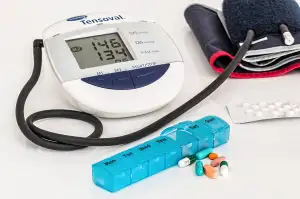Unveiling the Truth Behind Perspirant: The Science of Sweat and Health

Perspirent, commonly known as sweat, plays a crucial role in regulating body temperature and eliminating toxins from the body. It is primarily composed of water, electrolytes, and small amounts of waste products. Sweat itself is odorless; however, when it comes into contact with bacteria on the skin's surface, it can produce an unpleasant smell known as body odor. Understanding perspiration and its significance in maintaining overall health is essential for proper hygiene and well-being.
Factors Influencing Perspiration:
Perspiration, or sweat production, is influenced by various factors such as environmental conditions, physical activity, and emotional state. Environmental factors like temperature and humidity play a significant role in determining the rate of perspiration. Higher temperatures cause the body to sweat more to cool down, while humidity can hinder evaporation, leading to increased sweating. Physical activity also triggers sweat production as the body works harder and generates more heat. Additionally, emotions like stress or anxiety can stimulate the sweat glands, resulting in increased perspiration levels. Understanding these factors can help individuals better manage their sweat levels for optimal comfort and health.
Benefits of Perspiring:
Perspiration plays a crucial role in regulating body temperature by dissipating heat through evaporation, preventing overheating during physical exertion or exposure to high temperatures. Additionally, sweating aids in detoxification by flushing out toxins and impurities from the body through the skin. Moreover, perspiration helps maintain skin health by unclogging pores and reducing the risk of acne and other skin conditions. Therefore, embracing the natural process of perspiring is essential for overall well-being and optimal bodily function.
Risks of Excessive Perspiration:
Excessive perspiration, also known as hyperhidrosis, can lead to dehydration due to the loss of fluids and electrolytes from the body. This imbalance can result in symptoms such as dizziness, fatigue, and muscle cramps. Furthermore, prolonged exposure to sweat can cause skin irritations like rashes and fungal infections. It is essential to address excessive perspiration promptly to prevent these potential risks and maintain overall health.
Managing Perspiration:
Maintaining good hygiene practices is essential in managing perspiration. Regular showers with antibacterial soap can help reduce bacteria on the skin that contribute to body odor. Using antiperspirants containing aluminum compounds can help block sweat glands temporarily. For those with excessive sweating, medical treatments like prescription antiperspirants, Botox injections, or even surgery may be considered. It's important to consult a healthcare professional for guidance on the most suitable management approach based on individual needs and health conditions.
In conclusion, perspiration plays a crucial role in maintaining our overall health and well-being. It serves as a natural mechanism for regulating body temperature, eliminating toxins, and promoting skin health. However, excessive perspiration can lead to dehydration, electrolyte imbalances, and skin irritations. By practicing good hygiene, using antiperspirants, and seeking medical treatments when necessary, we can effectively manage perspiration levels. Remember, balance is key when it comes to perspiration for a healthy lifestyle.
Published: 17. 04. 2024
Category: Health



